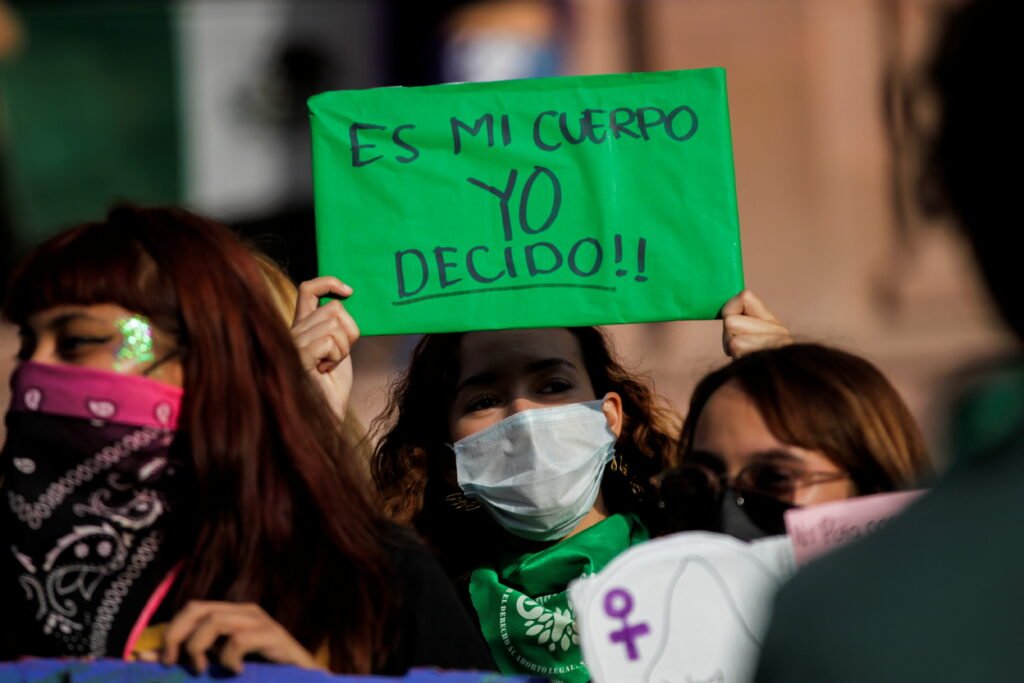Abortion has been illegal in Mexico since 1931, except in cases where there is an abortion because of negligence from the mother, the pregnancy puts the mother’s life in danger, and the pregnancy results from rape/assault. However, after recent protests against this regulation, the Mexican federal government has decriminalized abortion. The decriminalization of abortion is a huge step forward after criminalizing abortion for a century and recent pro-life/pro-choice debates in the US with the overturning of Roe v. Wade. Throughout this article, we will explore what abortion decriminalization means, the current state of abortion laws, and how this relates to the United States.
To start abortion decriminalization in Mexico means that the federal penal code will remove abortion. Decriminalization means that at the national level, abortion won’t be illegal, with 12 states legalizing abortion by removing it from their penal codes. Decriminalization also will drastically help with providing accessible medical services/resources that previously were outlawed. Specifically, this means that federal health institutions and public health services are required to offer an abortion to anyone who asks.
Though abortion became legal in Mexico City in 2007, the decriminalization of abortions on the national level is an incredible victory. Previous to decriminalization, activists would transport women seeking abortions to the capital city or provide them with medication to induce abortion. However, Mexico City would become the home of inducing abortion in painful and life-threatening ways, further preventing women from seeking help. Before the current ruling, women would have to go to hospitals to receive proper medical treatments to heal from abortions and would get arrested for supposed criminal activity. This cycle would continue to the point where thousands of women would face prosecution or imprisonment for seeking medical help with abortion. Thus, many feminists and activists are proud of the current decriminalization of abortions in Mexico. Anti-abortion activists, however, claim they will continue to fight to have these decisions reversed to ensure rights upon conception.
With the United States Supreme Court overturning Roe v. Wade on June 6, 2022, Mexico and the US have reached a full circle moment. The increasing number of women from Texas who have been traveling to the neighboring country of Mexico wanting to receive an abortion after the passing of anti-abortion laws in the state is a mirrored reflection of the many Mexican women who would travel to the US when abortion was legal to get medication for abortions as it was much safer, available, and less frowned upon. Now, with abortion becoming ‘legal’ in Mexico and becoming illegal in the US, American women are traveling to the country in hopes of receiving the same treatment the US was a haven for a couple of years prior. Specifically, they are going to Mexico to receive abortion-inducing pills, mifepristone, and misoprostol, which are much cheaper and accessible in Mexico than in the US. At-home clinics and professional clinics on the border have seen a surge in American patients, and the clinics are more than happy to provide the medications that allow women to have safe abortions.
For women who can’t travel to Mexico because of a lack of immigration documents or money, a network of activists has increased efforts to bring these medications to the US and provide them to these women. They also supply virtual help that walks women through the process of abortion (emotional and physical). With these options being available to women in Texas and other states, the National Right to Life Committee (NRLC) has suggested that many US states should make it illegal to help women receive an illegal abortion (including providing abortion-inducing drugs and giving instructions on how to cause an abortion). Legal experts already anticipate that lawmakers may attempt to pass legislation to prevent women from traveling out of state/country to get abortions. As to the practical practice of these supposed laws, many don’t know how this would be correctly and lawfully implemented/enforced.
In conclusion, Mexico’s decriminalization of abortion represents a milestone in the country’s struggle for gender equality. In Mexico and the US, their abortion laws demonstrate the potential for change and are a testament to the never-ending back and forths of politics and social justice/equality. We anticipate these conflicts continuing as both sides believe in the validity of their arguments. Regardless of what side you are on (pro-choice or pro-life), we should all agree that these debates have clouded politics worldwide and that the possibility of peace in our country and surrounding countries becomes slimmer and slimmer with every passing day.
Works Cited
“Americans Traveling to Mexico for Abortion Access.” YouTube, YouTube, 23 June 2022, www.youtube.com/watch?v=CUL31lkkWhY.
Janetsky, Megan. “Mexico Decriminalizes Abortion, Extending Latin American Trend of Widening Access to Procedure.” AP News, AP News, 7 Sept. 2023, apnews.com/article/mexico-abortion-decriminalize-d87f6edbdf68c2e6c8f5700b3afd15de.
Kitroeff, Natalie, and Oscar Lopez. “Abortion Is No Longer a Crime in Mexico. but Most Women Still Can’t Get One.” The New York Times, The New York Times, 8 Sept. 2021, www.nytimes.com/2021/09/08/world/americas/mexico-abortion-access.html.
“Mexico’s Supreme Court Decriminalizes Abortion.” YouTube, YouTube, 8 Sept. 2023, www.youtube.com/watch?v=Kq_m0b7P8Oo.
Shoichet, Catherine E. “More Americans Who Want Abortions Are Turning to Mexico for Help.” CNN, Cable News Network, 25 July 2022, www.cnn.com/2022/07/21/health/mexico-abortion-assistance-cec/index.html.
